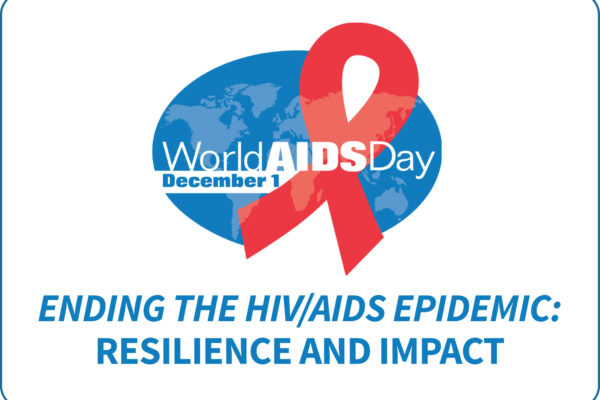Four Decades of Resilience

December 1st is World AIDS Day – our annual commemoration of the HIV pandemic, the deadliest public health crisis of the past 40 years. More than 75 million people have contracted HIV and the more than 36 million deaths from it have shattered the lives of individuals, families and communities across the globe.
The lessons of four decades of resilience in the fight against AIDS are vital to deploy amidst the devastating Covid pandemic and the unforeseen public health threats of the future. Nowhere has this resilience been more evident than in the action and activism of the LGBTQIA, African American and Latinx communities and their allies.
We learned in our response to HIV that there are universal, effective public health and health care strategies that save lives. We learned that there is no silver bullet when it comes to treatment – we need a combination of strategies to prevail. Barriers, be they either face coverings or condoms, stop infectious diseases. Cleanliness, helped by sanitizers or soaps or syringes, assures protection from viruses and bacteria. Most importantly, we learned that behavior change takes time. Time in which resilience trumps fatigue. Time during which care for one’s self and one another is paramount. These and other tried and true strategies have peeled us away from the horrific heights of the HIV pandemic. Collectively embracing them can also curtail Covid.
Relentless resilience in advocacy during the HIV epidemic brought forward critical changes to health care delivery. The nationally renowned patient-centered HIV Medical Home we have developed at Vivent Health is the template for responding to pandemic and caring for people with chronic or life-threatening disease. Our HIV Medical Home provides care for everyone in need, achieves some of the finest clinical quality outcomes in the world and saves the health care system tens of millions of dollars a year in unnecessary costs. At its core, our HIV Medical Home seeks to not only treat disease but also confront the social determinants driving the HIV epidemic today.
Much like HIV, Covid has laid bare the issue of health equity in our country. Similar to HIV, African American, Latinx and other racial communities are significantly more likely to contract Covid than whites. Black lives must matter not just in our conversations about pervasive violence but also in our creation of a health system that eliminates different outcomes for people based on their skin color, where they live, or who they love. Unfortunately, in a country that professes equality, our actions simply do not measure up. In fact, racial injustice is so fully integrated into the HIV epidemic that each one feeds upon the other. A study released by the Centers for Disease Control at the end of November highlighted this disproportionate impact. We will not prevail against HIV unless we also prevail in addressing injustice. Sadly, the same must be said for overcoming the Covid pandemic and pandemics yet to come. Our national pandemic playbook must be built on equity – health equity, economic equity, and social equity. There is no need to wait for the next virus to arrive, we can and should do this work now.
Early HIV advocacy also teaches us about how civil discourse amidst a pandemic. Born out of the gay rights movement, our advocacy was powerful and relentless. We left no doubt what needed to be done. And we were effective because we did not trade in demonizing others, but rather we were unyielding in lifting up the needs of people affected by HIV. We created a strong, bi-partisan response to HIV. Keep in mind when Joe Biden was Vice President our first National HIV/AIDS Strategy was inked and during his Presidency, Donald Trump highlighted Ending the Epidemic in successive State of the Union addresses, leading to a significant new investment to end HIV. This bipartisan commitment to Covid is what is sorely lacking today. Imagine the progress we would make if we depoliticized face coverings, supported physical distancing and worked together to end Covid rather than point fingers.
As we recognize World AIDS Day it is so vital to remember the wonderful people taken from us and the people who valiantly fight on. They are an inspiration for us all. Let’s honor their memory by applying the lessons from one of the darkest chapters of our public health history to prevent it from occurring again.
